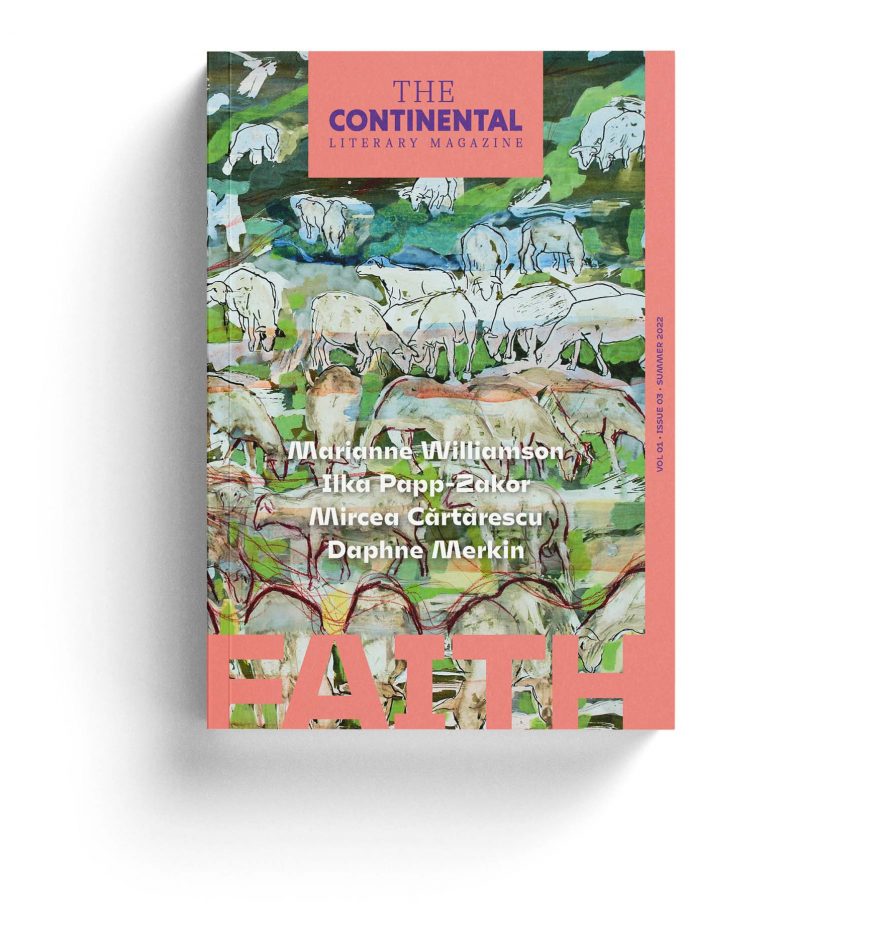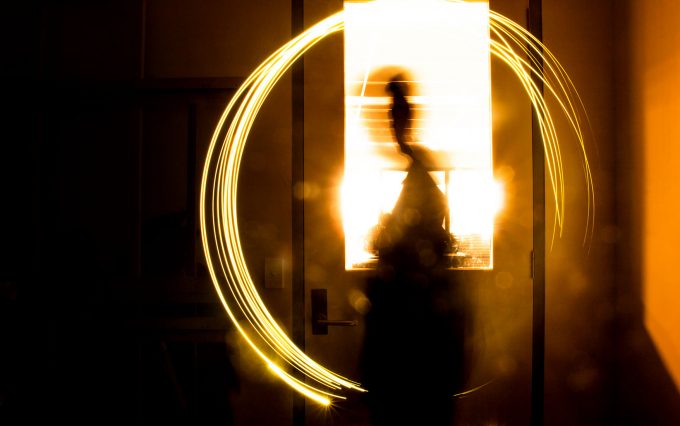
10th January 2023
Non-Fiction
6 minutes read
The Way I Live
translated by Bernard Adams

10th January 2023
6 minutes read
“I believe in dry white wine and olive oil.” Annie raised her glass and the guests clinked theirs. We were in a vast communal space, the lower level of a rambling, two-story house. Seated around the large table, the six of us were so far apart that we almost needed to shout. The space was full of all sorts of things with big, floral patterns—cushions, rugs, objets d’art, actual tall plants. When Annie, wife of theatre director and producer Marc, was showing us around she gestured a little embarrassedly, apologetically, at the artsy decorations that surrounded her; “It wasn’t our choice,” she said. There in the American Midwest it was mostly as they’d found it. The décor seemed to evince a nostalgia for the early years of the twentieth century. Everything was two rooms bigger, two tons heavier, houses were sprawling and spacious, refrigerators and wardrobes were enormous, there were huge, vulgar helpings of food, wide, massive cars in which you could almost lie flat. Annie served everyone dark pink salmon from the big dish; there was a light white wine to accompany it, and the glasses were immediately clouded by condensation. We laughed on hearing Annie’s creed;
well, of course, all of us firmly and truly believed in dry white wine and olive oil, that was our modus vivendi.
That was the faith by which we lived, our faith was our bodies, it was that which had shaped us.
There come particular, heightened moments in life when you are pinned down under a withering fire of such questions as “What do you believe in? What is the essence of your faith?” and there is no retreat. You have to answer. You answer even when you don’t realize that you’re being questioned and are answering. Annie’s life was not at such a moment; no one pinned her down with with any kind of questioning while she lived with her family in that small American town—the edges of which were inaccessible without a car—in security, a modicum of boredom, and perhaps with the frequent evening practice of her faith, that is, the draining of a bottle or two of dry white wine, chilled to a precise temperature. No warfare, no distressing events surrounded her. It was possible that her husband would soon be called away, and then that the American Dream would end, but only for another to begin. Her husband might go to New York to direct a theatre production, and at worst they would live in a flat the size of their present bathroom, but then another dream would be beginning! In the final analysis, Annie didn’t know about her faith although she proclaimed it, proclaimed herself: rather, she just floated on its surface, lightly, devoid of care. The living was easy for Annie, there was not a cloud in sight.
Your life is your faith, you rather betray it by your movements, your words, your thoughts, indeed, even your omissions. Faith is also neglect, when you fail to speak or act in accordance with it. Such failure, not to speak, not to act, is sin, as the Catholic mass states, but every faith—even that in olive oil and dry white wine—calls us to practice it: to live in accordance with it.
Your faith is the way you live.
It is the smallest and most profound factor in your life.
There come, however, particular heightened moments in life when it is scarcely possible or at least very hard for one to live in accordance with one’s faith. I cannot conceive how a responsible Russian intellectual should live in this blazing world and neglect to speak or act. Anyone who speaks the word ‘war’ (война) nowadays in Russia is risking fifteen years’ imprisonment. If he does not speak it, he risks the salvation of his soul. How is his faith to find the narrow way forward and make a statement? At the same time, however, another Russian is fully convinced of the rightfulness of the “military intervention” and declares that his country is acting as it should and that he too lives in accordance with that; he speaks and disseminates his belief in his actions. He holds the field, he can express his belief unscathed and preach it without fear, indeed, he can clothe himself with a symbol that reflects that, the now dreaded letter Z. In his country at least, that field presently accords with his belief. In these flame-engulfed times, holding the field does not merely allude to a contest for territory but also to the question of which field permits what belief to appear in it, the extent to which it supports or suppresses the belief that literally takes shape there. For when all is said and done, there is no faith that does not wish for embodiment.
Embodiment is a theatrical term, one used in modern theatre studies: everything seeks to become flesh. In the modern world flesh is evaluated not only as having all kinds of cults attached to it, but that everything has become readable from it. Flesh no longer exists without meaning; even faith can be read from it.
I want to enter a blazing time, a different one, in which distance has made signs more arrangeable.
Women will be leaders, so that we may see not only men’s wars but also women’s choices.
It is Germany in 1935, a time in which fields narrowed and expanded radically. An occupation is taking place in which waving arms are triumphant, or at least Leni Riefenstahl’s propaganda film Triumph of the Will creates that mental imagery. According to this confession of faith, bodies are regulated, uniform and healthy, energetic and determined, ready for action, ready for battle. Bodies are managed, indeed, stage-managed; they stand in serried ranks, march, process, as a unified whole, they exist as a single commonalty. Bodies are young and potent. They hold the field; the power, the country, the glory are theirs. All their attention is directed to a single focal point: the Leader is coming to visit them. From above, from the heavens, from on high. He has taken the place of the Creator. In this great common existence, this common will, there is no further need of a higher power, everything is here, has descended to Earth and come to your aid. Every church is henceforth redundant. This is liturgy itself. The Savior is coming in the person of the Leader, the Führer, and will shortly address them, the regulated bodies that yearn for him.
He will mold his beliefs into words, words such as will kill.
Faith gives shape. Beliefs kill bodies.
FULL VERSION AVAILABLE IN THE PRINT EDITION







